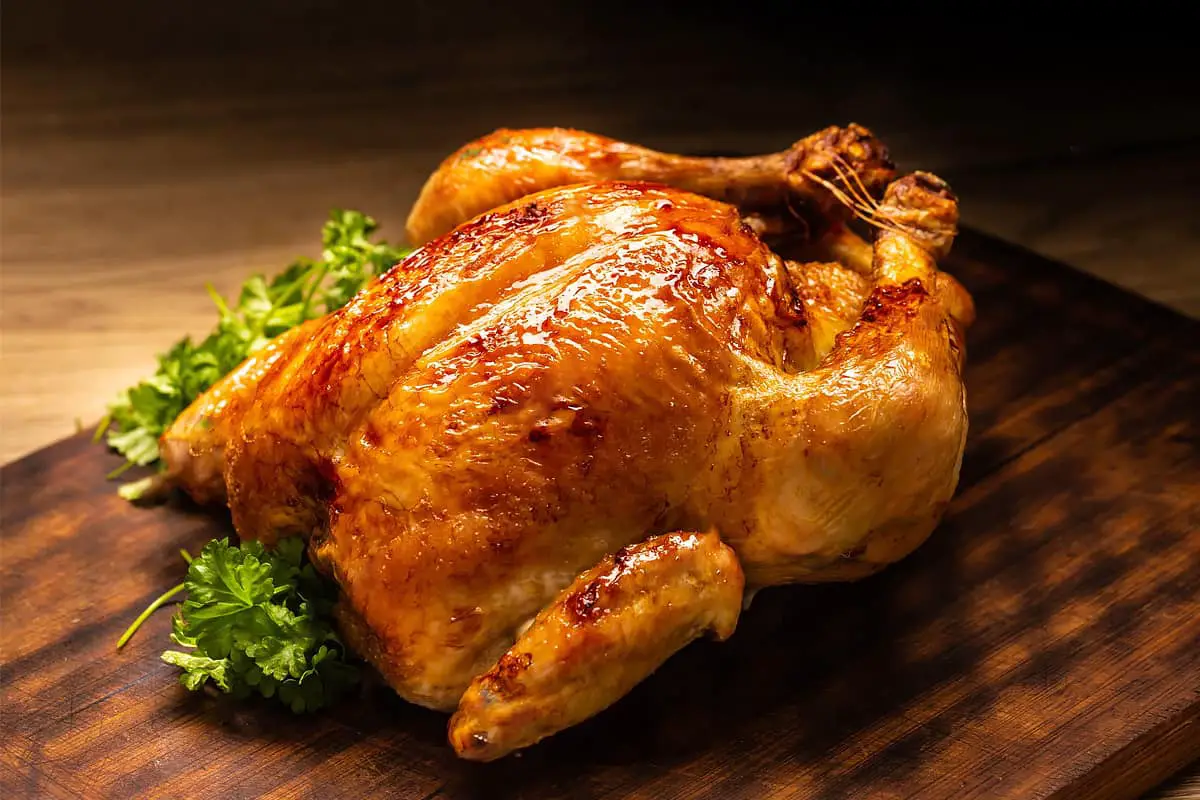Chicken is a widely enjoyed protein that can be prepared in countless ways. From spicy stir-fries to comforting curries and tasty tacos, there’s no denying the deliciousness of chicken. However, have you ever wondered about the digestion time for chicken? The duration can vary depending on various factors.
In this article, we will explore these factors and provide helpful tips to expedite chicken digestion. Get ready for an informative exploration of the chicken digestion process!
Chicken: A Digestible Protein Source
When it comes to digestibility, chicken takes the top spot among proteins. Compared to beef or pork, chicken is easier on the stomach because it has less connective tissue and lower fat levels.
For those dealing with digestive problems like Irritable Bowel Syndrome, skinless chicken breasts can be a beneficial alternative. With their lack of fiber, they help alleviate discomfort. For maximum health benefits, opt for baking or grilling, which keeps the fat content at its lowest.
The Process of Digesting Chicken: A Comprehensive Guide
Digestion is a fascinating and intricate process that involves breaking down food into smaller, usable components that provide energy to our bodies. When it comes to digesting chicken, there are several stages that play a crucial role in this process:
Mouth: The journey begins in the mouth, where our teeth and tongue work in harmony to break down the chicken into smaller, more manageable pieces. Saliva, which contains enzymes, further aids in breaking down carbohydrates.
Esophagus: Once the chicken is chewed and mixed with saliva, it travels down the esophagus, a muscular tube connecting the mouth to the stomach.
Stomach: In the stomach, the chicken is mixed with stomach acid and enzymes that specialize in breaking down proteins. Additionally, the stomach releases a mixture called chyme, which consists of partially digested food and digestive juices, into the small intestine.
Small Intestine: The small intestine is where the magic happens. Most of the essential nutrients from the chicken are absorbed into the bloodstream here. Digestive enzymes from the pancreas and bile from the liver play a vital role in breaking down fats, carbohydrates, and proteins into their building blocks.
Large Intestine: The large intestine focuses on absorbing water and electrolytes from any remaining undigested food. It then transforms this waste into feces, which are ultimately eliminated from the body through the rectum and anus.
Overall, digestion is a complex process that involves teamwork from various organs and systems. They work together seamlessly to extract vital nutrients from the chicken we consume and dispose of waste efficiently.

Discovering the Digestion Time of Chicken
The digestion time of chicken can vary depending on factors such as digestive health, size of the chicken pieces, and cooking method.
On average, it takes 2 to 6 hours for chicken to be fully digested in the stomach and small intestine. However, certain studies indicate that high-fat or high-protein meals, like chicken, may require more time to be processed by the digestive system.
In conclusion, the digestion time of chicken is influenced by individual factors and can be challenging to accurately predict.
Factors Affecting Chicken Digestion: Cooking Method, Digestive Health, and Portion Size
The way you cook and prepare chicken can greatly impact its digestibility. Grilled or baked chicken tends to be easier on the stomach compared to fried chicken or dishes with heavy seasoning or sauce.
Moreover, individual digestive health plays a crucial role in how well chicken is digested. Those with conditions like Irritable Bowel Syndrome (IBS) or Crohn’s Disease may find it more challenging to digest certain foods, including chicken.
Additionally, the portion size of chicken can affect digestion. Larger portions or meals that are high in fat or protein may take longer to digest, whereas smaller portions or meals with lower fat and protein content are digested more efficiently.
Consider these factors to optimize the digestion of chicken for a healthier and smoother experience.
How to Improve Chicken Digestion: Expert Recommendations
Achieving optimal digestion when it comes to chicken can be a breeze if you follow these expert tips:
- Acidic marinades: Marinating chicken in an acidic mixture can work wonders in breaking down proteins, making the meat easier to digest. Boost your cooking skills by incorporating this step into your recipe.
- Hydration is key: Drinking ample water before and during a meal can softy prepare the chicken for digestion, while also promoting the smooth movement of food through your digestive system. Stay hydrated, and watch your digestion improve.
- Chew, chew, chew: Take the time to thoroughly chew your food, not only to mechanically break it down, but also to stimulate the release of gastric acid in your stomach. This acidification helps in the digestion of meat, and dividing your meal into smaller pieces can speed up the overall digestive process.
- The power of papaya: Incorporating papaya into your diet may enhance the digestion of chicken, thanks to an enzyme called papain. Known for its ability to break down protein molecules, papain is often used as a meat tenderizer. Enjoy the benefits of papaya and say goodbye to bloating and discomfort in your digestive system.
- Pineapple for the win: Adding a chunk of pineapple to your chicken dish may also be beneficial for digestion. The enzyme bromelain, found in pineapple, aids in breaking down protein molecules, making it a popular natural meat tenderizer.
By following these expert recommendations, you can speed up the process of chicken digestion and ensure a more comfortable dining experience.
The Surprising Health Benefits of Eating Chicken
Discover the amazing ways that adding chicken to your diet can improve your health. With its high-quality protein content, chicken is an essential ingredient for repairing and building tissues in the body, including muscles, bones, and skin. Plus, it’s a low-fat option for those mindful of their fat intake.
Not only is chicken packed with important vitamins and minerals like B6, niacin, phosphorus, and selenium, but it also contains zinc, which supports a strong immune system and overall wellness. Athletes and fitness enthusiasts will especially appreciate how chicken’s protein content promotes muscle growth and repair.
Moreover, chicken is a valuable source of phosphorus, crucial for maintaining healthy bones and teeth. And, studies suggest that incorporating chicken into your diet may even help reduce the risk of certain cancers, like colorectal cancer.
Incorporating chicken into a well-rounded diet can have a profound impact on your overall health and wellness. Don’t miss out on the countless benefits that this versatile protein can provide.


